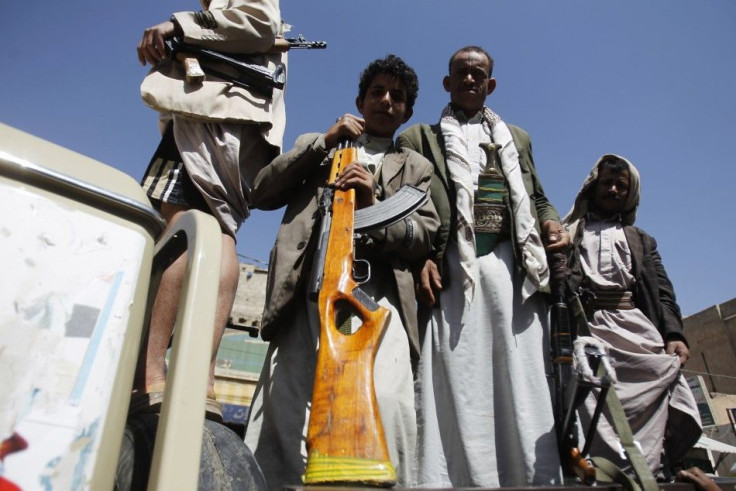Al-Qaeda Gains Ground in Troubled Yemen

Al-Qaeda has always had a strong presence in Yemen, but with the country currently in the middle of a governmental transition, the terrorist group has launched a violent campaign for land and power.
For the past few days, al-Qaeda-linked militants have been attacking towns in the southwest of the country and have approached within 100 miles of the capital city of Sanaa.
On Saturday, militants led by Tariq al-Zahab, the brother-in-law of U.S.-born cleric and al-Qaeda recruiter Anwar al-Awlaki, raided the town of Radaa, storming the police station and freeing about 150 inmates from prison. The band of around 200 fighters continued to kidnap soldiers and steal weapons over the following days, according to the BBC, before finally raising their black flag in victory over the town's castle.
The al-Qaeda in the Arabian Peninsula (AQAP) group now has control of seven towns and cities in southern Yemen, including the provincial capital of Zinjibar, and have managed to hold on to territory during battles with government troops.
The recent fighting has displaced about 97,000 people, according to Reuters. Additionally, a tribal rebellion led by the al-Ahmar family in the north of Yemen has caused another 300,000 to flee their homes.
There are so many problems, Walid al-Rawshan from Yemen's embassy in London told the BBC. Al-Qaeda is only one of them.
Meanwhile, President Ali Abdullah Saleh is negotiating the terms of his resignation. After three decades of rule, Saleh has agreed to step down after months of popular protests in Yemen, but only under the condition that he and all members of his government get immunity from prosecution for crimes committed under his regime.
For years, Saleh received funding from the United States to combat the al-Qaeda surge in his country. During his 33 years in power, Saleh had successfully quelled militant and tribal tensions through a combination of treaties, alliances and military action.
Although he has transferred power to his vice president, Abd Rabbuh Mansur al-Hadi, he still remains an influential political voice, much to the dismay of the protestors demanding his resignation and arrest for human rights abuses.
Additionally, opposition leaders have accused Saleh of letting al-Qaeda take control of the southern cities in a veiled attempt to prove that the country needs him in power for security reasons, according to The Associated Press.
New presidential elections are scheduled for February.
© Copyright IBTimes 2024. All rights reserved.





















